The news that Great Dixter had to cancel its Spring Plant Fair this week due to wet conditions is the latest announcement in a string of cancellations, delays and closures to hit public gardens and events in the past few months. It seems that waterlogged gardens are on the rise.
You may also like
- How to make the most of rainfall
- How to collect rainwater
- The best water butts to buy
- Saving water in garden design
It's been wet, of that nobody can deny. Met Office figures show that the past 18 months have seen a record amount of rainfall, with 1,695.9 mm falling between October 2022 to March 2024. The winter of 2023/2024 has been the eighth wettest on record in the UK, while the south of England experienced its wettest February since 1836.
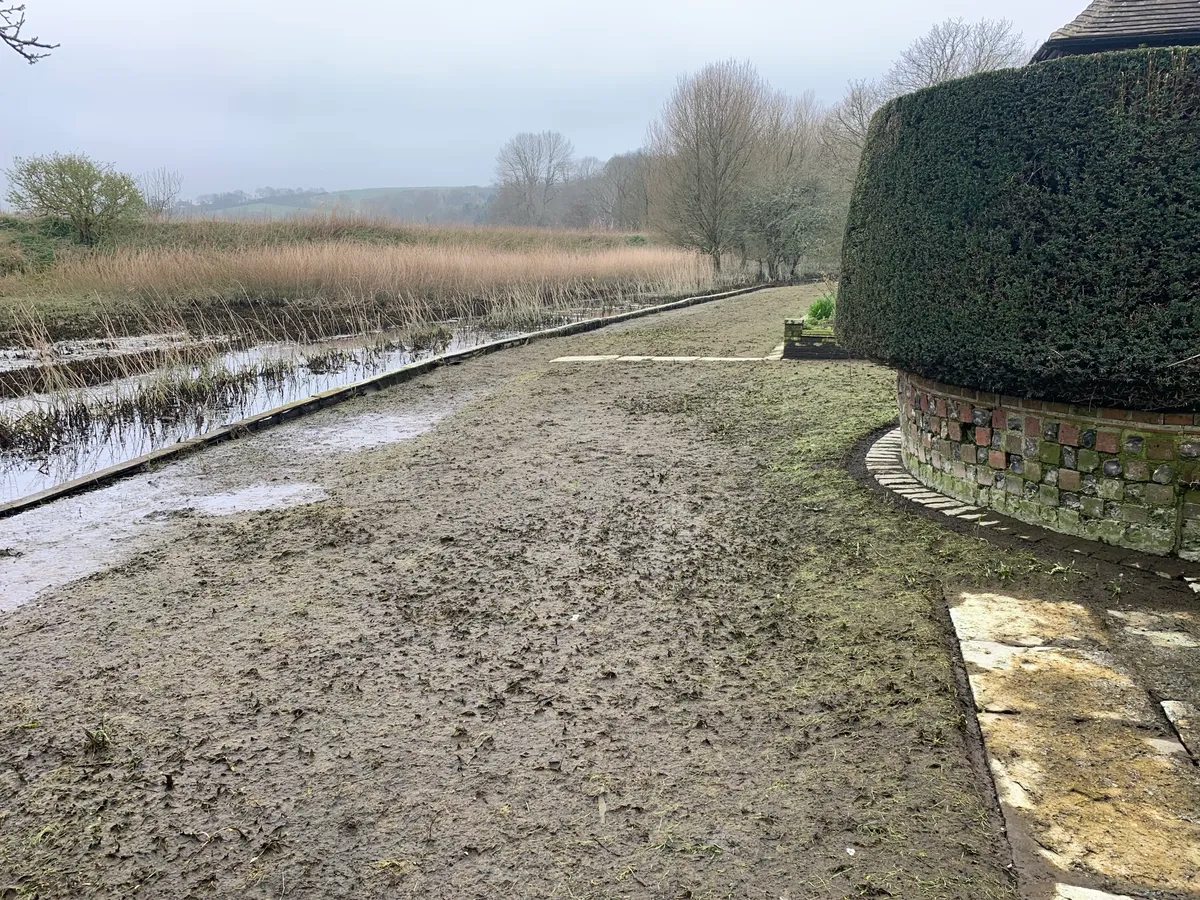
Rob Flack, a Christopher Lloyd Scholar at Great Dixter said: “Spring has been fairly wet, which has caused persistent saturation, making planting in the garden sticky and tricky. It’s a great shame to have cancelled the plant fair. The knock-on effects of this will now trickle down to the small scale nurseries and the networking for up-and-coming horticulturists, in what is normally a fantastic opening the season. With such extremes in the weather, we’ll have to adapt so that this doesn’t become a regular occurrence.”
The rain has had an impact across the country. Gardens such as Stockton Bury in Herefordshire have had to delay opening to garden visitors because of waterlogging, missing their usual Easter weekend reopenings (the cafe and plant sales at Stockton Bury are still open).
Head gardener at Stockton Bury Tamsin Westhorpe said: " The main reason we have delayed our opening is to protect the lawns. Even when gardening we are trying our best to keep off them. Well worn area have been reseeded but it's been too wet for the grass to take. In order to protect the garden and the lawns for the rest of season we have made this very difficult decision, but hope it is a very short term thing.
"The saddest thing for us is that have a wonderful array of spring flowering plants in early April and they will be missed. We are hoping to open in time to catch the end of the tulips. As a family we have worked all winter with the opening date in mind so this is hugely disappointing and reminds me of the Covid lock down."
Abbotsbury Subtropical Gardens in Dorset cancelled a recent event because of too much rain.
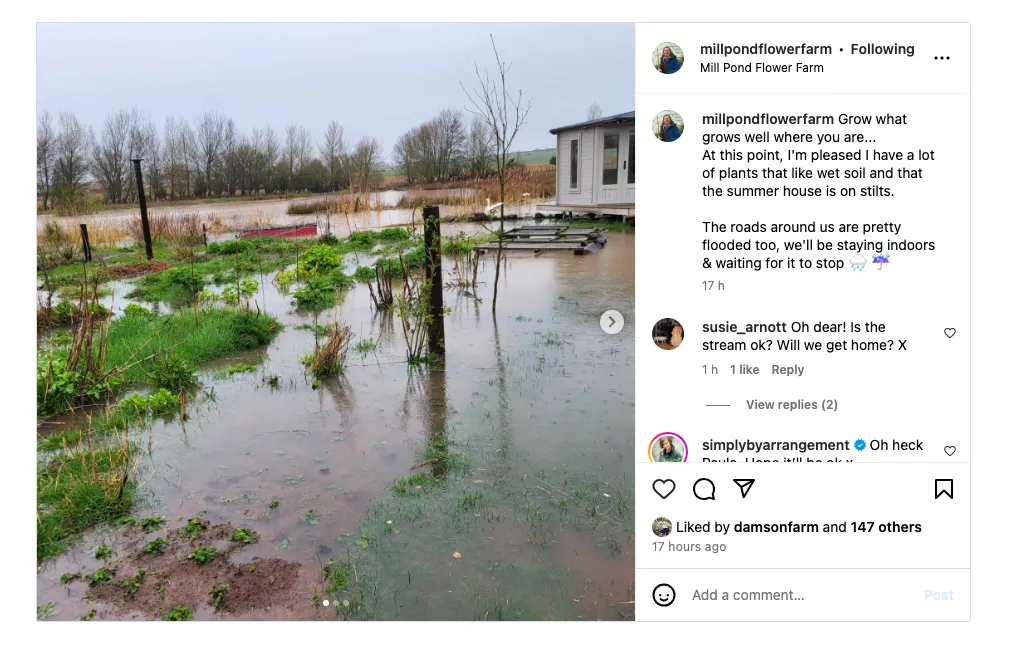
We are increasingly seeing social media posts from gardeners and flower farmers, such as Mill Pond Flower Farm in Berwick-upon-Tweed, that have been hit by a vast amount of water. Even the nation's favourite gardener, Monty Don, has revealed problems with flooding in the landscape around his garden.
You may also like
- Plants that will survive a flood
- The best plants for winter wet soil
- Tickets, dates and information for Chelsea Flower Show
At the National Trust's Charlecote Park in Warwickshire, a 260-year old Cedar of Lebanon came down in the deer park - it is thought due to the weight of water brought by Storm Babet in October 2023. The tree is believed to have been planted in the 1760s as part of improvements made by ‘Capability’ Brown. Large areas of the parkland have been closed or inaccessible due to flooding, storm damage and waterlogged ground.
The River Tern burst its banks around the same time, leading to the Deer Park at Attingham Park in Shropshire being closed, with huge swathes of water flowing through the parkland. Also this month, parts of the garden at Alfriston Clergy House in East Sussex couldn't be accessed due to extended flooding that lasted a couple of weeks.
It's not just rain. February was the warmest on record globally
A spokesperson for the National Trust said that the organisation continues to work on projects with Shropshire Council and the Environment Agency, to help slow the flow and reduce flood risk. But it's a constant battle.
Tamsin Westhorpe, head gardener at Stocktonbury said she is continually adjusting to the weather: "Once the rain stops I think the garden will dry out quickly and we will be open very soon - there are people is far worse situations than us. As for the future you can't plan too much as every year is so different. One thing is for sure - we are thankful we haven't planted too many drought tolerant plants as rainfall like this would've killed them!
"We do a tremendous amount of gardening in autumn and winter as we have learnt over the years spring can bring the worst weather and halt work."
It's not just rain. February was the warmest on record globally, and gardeners and scientists are increasingly noticing that the changes in weather are significantly affecting plants and wildlife.
Scientists from the University of Warwick have been looking into how the early appearance of blossoms and blooms - around four weeks earlier than usual - is impacting on the environment, wildlife hibernation, but also crops and therefore food prices.
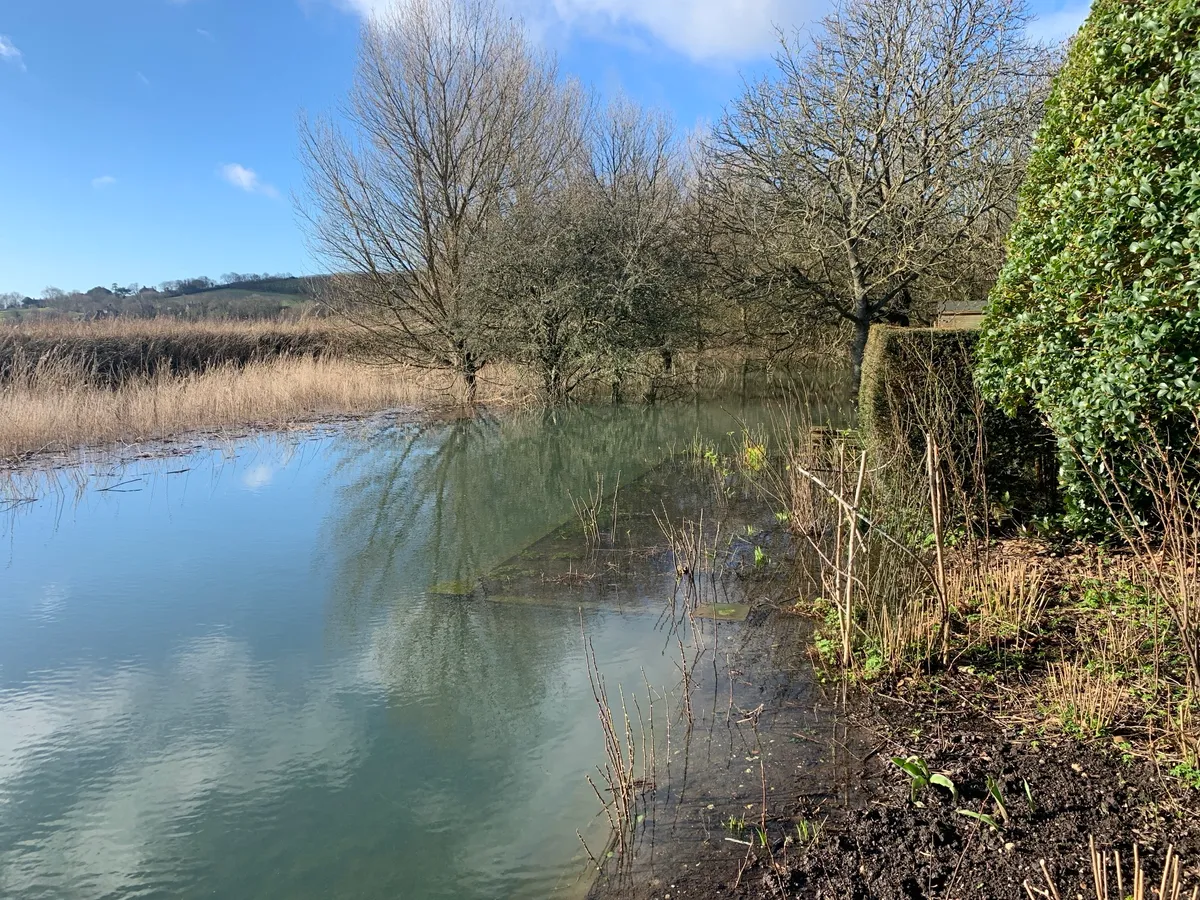
“Many of the natural events that occur this season are influenced by weather conditions in the preceding months,” explains Professor Rosemary Collier, crop expert at the University of Warwick. “This includes the first flowering of plants such as daffodils and when particular tree species produce new leaves.”
Observations show a clear warming trend for average UK winter temperature, and this trend is expected to continue in the future due to human induced climate change. This doesn’t mean the UK will no longer see cold spells, but cold spells are projected to become less frequent and less severe.
Wet weather is very bad for bees, as they don’t fly in the rain
Professor Collier added: “Although rainfall observations show large variability, it has generally become wetter, particularly during winter. Met Office climate projections indicate that on average, winters will continue to become wetter and summers drier, though natural variability will mean we will continue to see individual years that don’t follow this trend.”
The National Trust recently confirmed that the changes in weather this year has meant certain flowering trees and blossom have emerged four weeks earlier than usual.
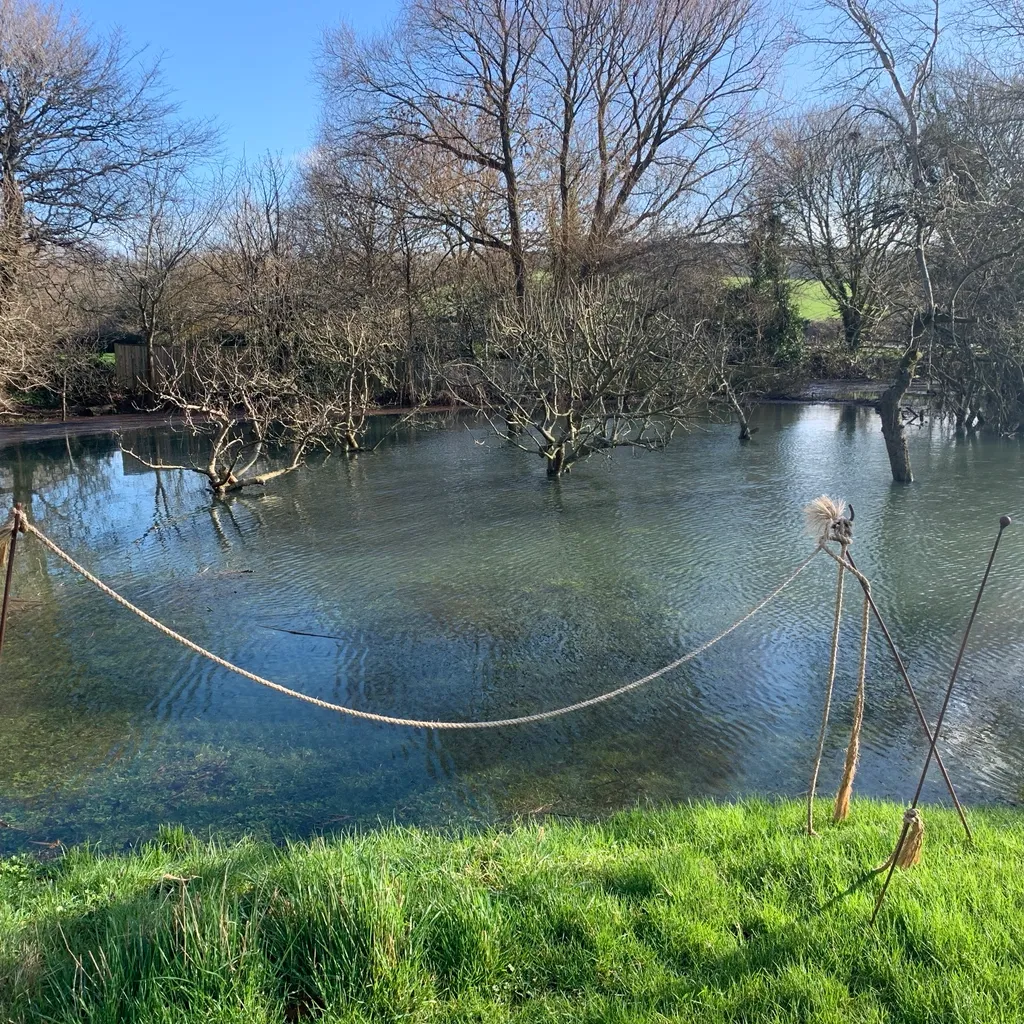
Last year, the magnolias at Glendurgan in Cornwall reached their peak flowering in late March, whereas this year, they started emerging and reached optimum flowering four weeks early.
John Lanyon, National Trust garden manager for Trelissick, Glendurgan, Trerice and Bosloe in Cornwall said: “Due to Cornwall’s unique microclimate, we haven’t been hit as badly by the heavy rainfall that has been persistent across many areas of the country since the autumn.
“But it has been so mild that some of the varieties of rhododendrons that we care for have been blooming since late November, and not properly ‘shutting’ down."
Chris Flynn, Head Gardener at Dyffryn said: “Across our garden, the warm and wet weather has really turned up the dial, with our Magnolia denudata, liliflora and soulangeana are both out three weeks ahead of the norm. "
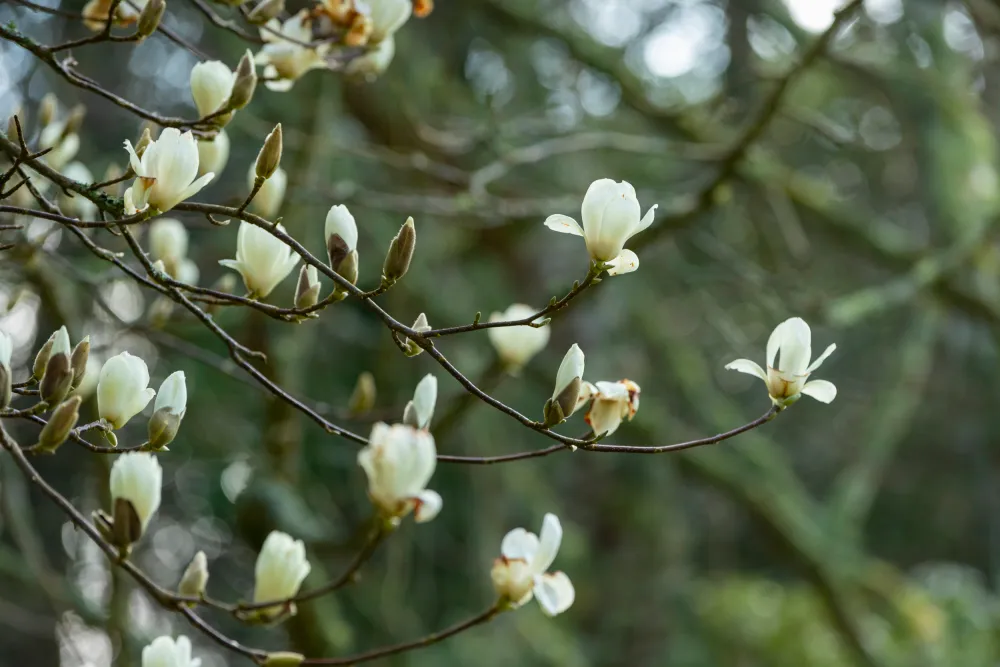
What does this mean for gardens and farmers? Flood defence is a key element of how to manage a garden or green space. Focusing on crops and plants that will be resilient in the face of flooding will also be very important, as will supporting wildlife that is struggling in the face of climate change.
Professor David Chandler, School of Life Sciences, University of Warwick, said: “Wet weather is very bad for bees, as they don’t fly in the rain – so bees that need to venture out early in spring to look for food for the colony, and are faced with lots of rainy days, could struggle.”
If they do emerge early there may be insufficient sources of food to maintain them. Planting trees, shrubs, and other plants that flower early, to ensure that there is a supply of nectar, is a good way of trying to help.





